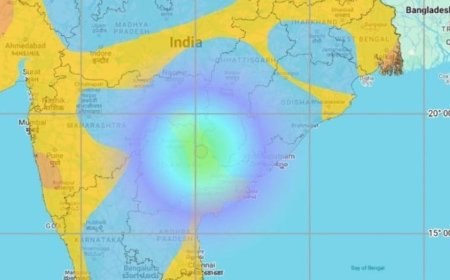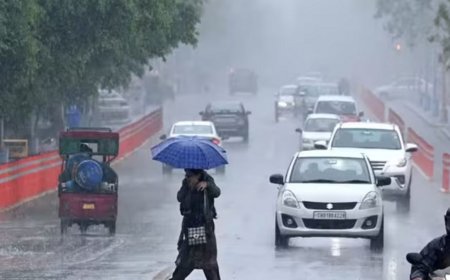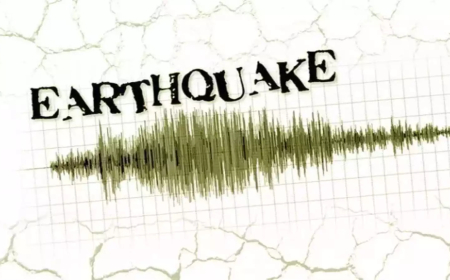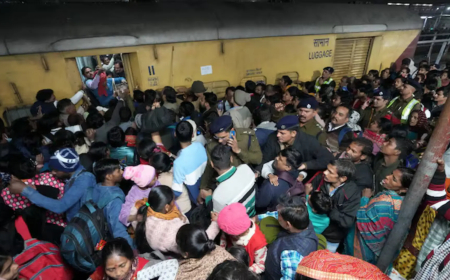PM Jokes About Speaking Marathi While Addressing Rajya Sabha Member During Language Debate
Prime Minister makes a light-hearted remark about speaking in Marathi during a Rajya Sabha session, sparking laughter amid an ongoing debate on language preferences in Parliament. Read how this unfolded and why language in politics remains a hot topic.
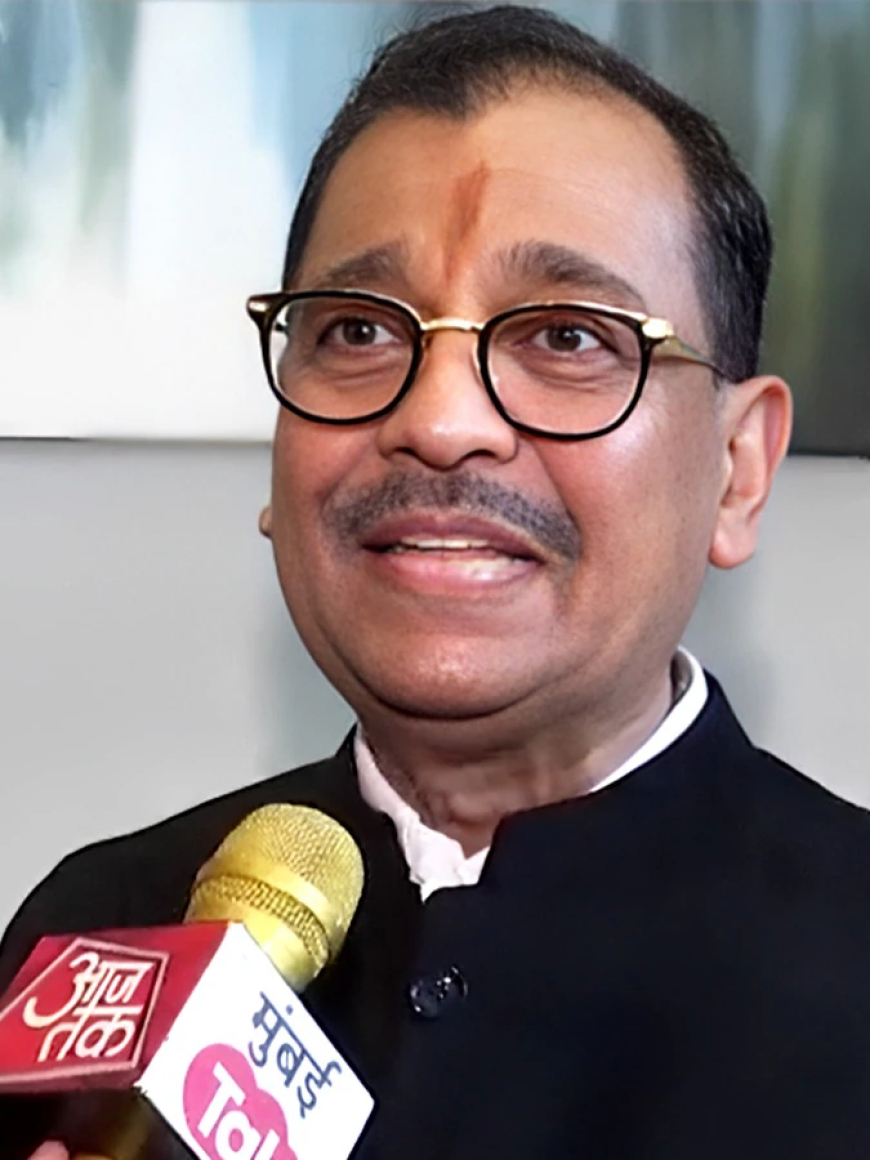
Language has always played a powerful role in India's political and social landscape, especially in a country as diverse as ours. Recently, during a discussion in the Rajya Sabha, Prime Minister Narendra Modi made a light-hearted yet sharp comment that caught everyone’s attention. In the middle of a rising debate over language use in Parliament, the PM turned to a newly elected Rajya Sabha member and jokingly asked, "Should I speak in Marathi?"
What seemed like a casual question carried a deeper meaning—bringing attention to India’s linguistic diversity, representation, and how language continues to be a sensitive topic in Indian politics.
Let’s break down what happened, what it meant, and why it matters.
1. What Actually Happened?
-
During a recent Rajya Sabha session, Prime Minister Narendra Modi was addressing newly elected members.
-
While congratulating a new member from Maharashtra, the PM suddenly smiled and said, “Should I speak in Marathi?”
-
This remark came right in the middle of a wider discussion around language preferences in the Parliament.
-
The entire House burst into laughter, and the comment quickly caught public attention.
2. Why Did the PM Say That?
-
The Prime Minister’s comment was meant as a light-hearted quip, but it was also a subtle response to the ongoing language debate.
-
Recently, questions have been raised about whether Hindi should dominate Parliament discussions or if regional languages should have more space.
-
His joke about switching to Marathi was seen by many as a gesture of inclusiveness, acknowledging India’s rich multilingual culture.
3. The Context Behind the Language Debate
-
In the last few months, several MPs and parties have voiced concerns about regional languages not being used enough in Parliament.
-
Some argued that non-Hindi speakers feel excluded, while others have demanded better translation services during sessions.
-
This has reignited the conversation about language equality and whether Parliament should do more to reflect the country’s linguistic diversity.
4. Language in Indian Parliament: A Brief Overview
-
The Indian Constitution allows members of Parliament to speak in any of the 22 scheduled languages.
-
However, most official communication and proceedings are done in Hindi and English.
-
This can sometimes make it difficult for members who are more comfortable in regional languages, like Tamil, Telugu, Marathi, Bengali, or Malayalam.
5. Was PM Modi Being Sarcastic or Supportive?
-
While some critics thought the PM’s remark was mocking the language row, many others viewed it as supportive.
-
Supporters believe the PM was showing that he respects all languages and is willing to speak in any language if needed.
-
His comment also shows a recognition of Maharashtra's contribution to national politics.
6. Reactions from the Opposition
-
Members of the opposition had mixed responses.
-
Some welcomed the PM’s tone, saying it was a positive signal toward embracing all Indian languages.
-
Others felt it was a way to dodge deeper questions about how inclusive Parliament really is when it comes to language.
7. Reactions from the Public
-
The clip of the PM’s remark went viral on social media.
-
While some users applauded the PM for his sense of humor and inclusiveness, others questioned whether meaningful change would follow.
-
Hashtags like #SpeakMyLanguage and #ParliamentForAll started trending shortly after.
8. Regional Pride and Representation
-
Language is not just a communication tool; in India, it’s also a symbol of cultural identity.
-
Many regional leaders and citizens feel that not enough is being done to promote their languages at the national level.
-
The PM’s comment touched on that sentiment, especially for Marathi speakers who felt seen and acknowledged.
9. Political Messaging in Simple Words
-
PM Modi is known for his ability to make big political points through small gestures.
-
Saying “Shall I speak in Marathi?” was not just a joke—it was a message.
-
It showed that he’s listening to the national conversation on language and is open to diversity in Parliament.
10. The Role of Language in Indian Unity
-
India is one of the most linguistically diverse countries in the world.
-
Balancing national identity with regional pride has always been a challenge.
-
Promoting all languages equally is not just about words—it’s about respect and representation.
11. Are Changes Coming to Parliamentary Language Use?
-
The Lok Sabha and Rajya Sabha secretariats have been working on improving interpretation services.
-
There are discussions about allowing more MPs to speak in their preferred regional language, with live translation for all members.
-
If implemented well, this could strengthen the idea of democracy for all, regardless of the language they speak.
12. Final Thoughts: Why This Moment Matters
-
The PM’s Marathi remark might seem like a simple joke, but in the context of Indian politics, it says a lot.
-
It brings attention to the real need for linguistic inclusivity in the country’s highest lawmaking body.
-
It also reminds us that language should be a bridge—not a barrier—in building a stronger, more united India.
Conclusion
In a country with multiple languages, cultures, and traditions, a small statement like “Should I speak in Marathi?” can carry a big message. It tells citizens that their voices matter, no matter what language they use.
Whether this marks the beginning of real change or is just another moment of humor in Parliament, only time will tell. But for now, it has certainly sparked an important conversation—one that India must keep having.
Stay Updated
Keep following our blog for updates on:
-
Parliament debates
-
Language policies in India
-
Cultural and political shifts
-
Reactions from leaders and citizens
Let me know if you'd like this article rewritten in Hindi, Marathi, or as a social media carousel/post, and I’ll gladly prepare it for you!
What's Your Reaction?





























